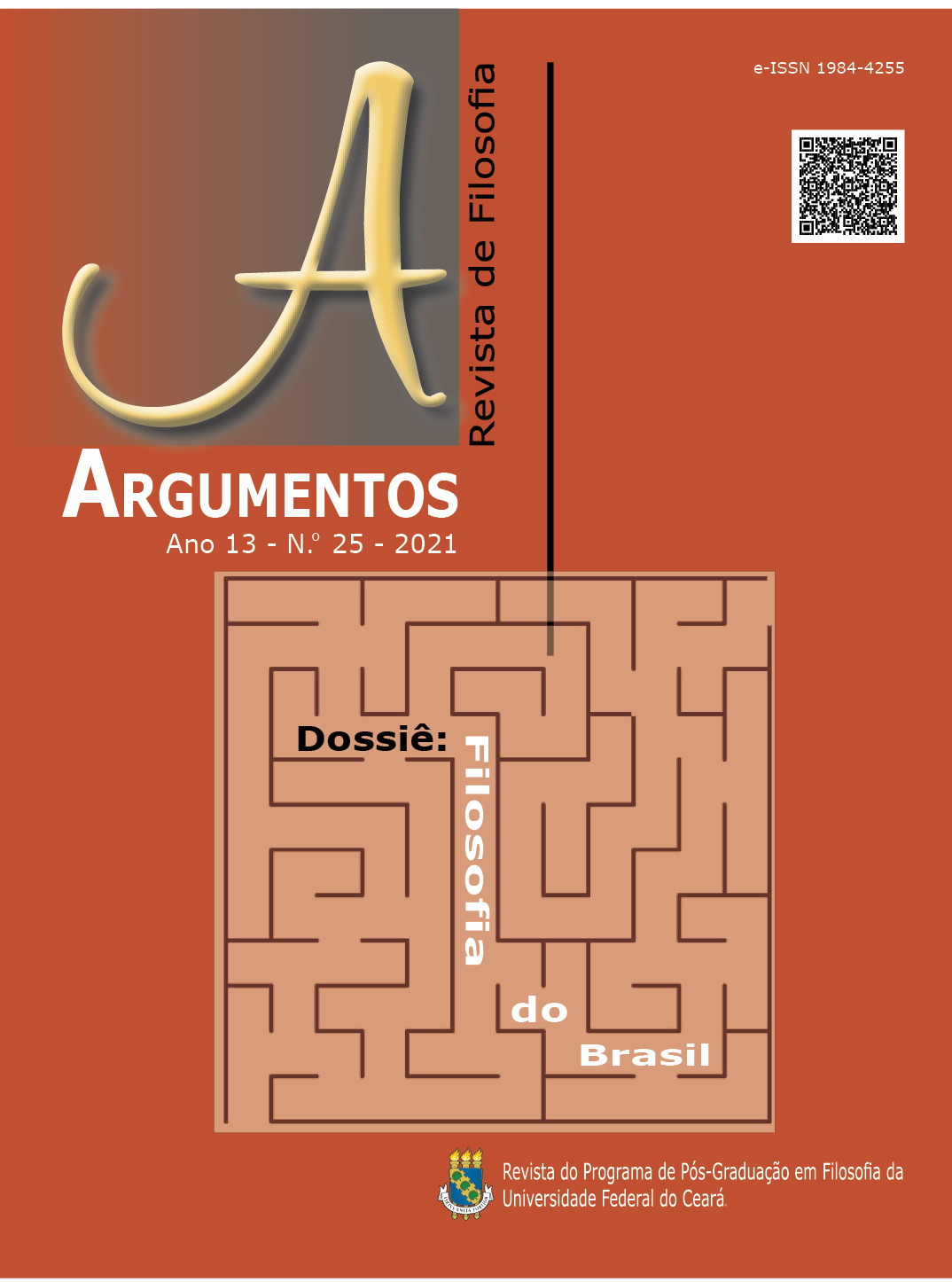To do philosophy in Brazil: civil, practical, productive, ours
DOI:
https://doi.org/10.36517/Argumentos.25.2Keywords:
Doing Brazilian philosophy. Porchatian neo-Pyrrhonism. Mangabeirian Hegelian-pragmatism. Practical-poietic philosophical point of view.Abstract
Taking as a starting point the question of doing philosophy in Brazil, the paper develops a contribution to the progression of a national debate about the topic. It passes from the question of doing philosophy to that of the unpopularity of the national in our academic philosophical community. Then it briefly discusses two examples of Brazilian philosophical work: 1) the neo-Pyrrhonism of Oswaldo Porchat Pereira, as an appropriation of a Greek historical philosophical tradition that could develop among us into a practical deflationism, and 2) the radical, political, Young-Hegelian pragmatism of Roberto Mangabeira Unger. Finally, the article presents an outline of a poietic-pragmatic philosophical point of view, in reconstructive dialogue with Marx’s practical-productive materialism.
References
PORCHAT, O. Ainda é Preciso Ser Cético. Discurso 32, 2001. p. 53-69.
PORCHAT, O. Oswaldo Porchat (1933). In: NOBRE, M.; REGO, J. (Orgs.). Conversas com Filósofos Brasileiros. São Paulo: Editora 34, 2000. p. 119-144.
PORCHAT, O. Prefácio a uma Filosofia. Discurso 6, 1975. p. 105-132.
PORCHAT, O. A Filosofia e a Visão Comum do Mundo. São Paulo: Brasiliense, 1981.
PORCHAT, O. O Comum dos Homens. Livro Aberto 1/5, 1997. p. 1-13.
PORCHAT, O. Vida Comum e Ceticismo. São Paulo: Brasiliense, 1993.
SOUZA, J, C. A Filosofia como Coisa Civil. In: SOUZA, J. C. (Org.). A Filosofia entre Nós. Ijuí: Ed. Unijuí, 2005.
UNGER, R. M. The Self Awakened: Pragmatism Unbound. Cambridge: Cambridge University Press, 2007.
Downloads
Published
Issue
Section
License
Argumentos magazine is licensed under an International Creative Commons Attribution License.
The Magazine uses CC BY inclusion
1) The authors retain the copyright granted to the magazine or the right to initial publication, with the work regularly licensed under the Creative Commons Attribution, which allows the sharing of the work with acknowledgment of authorship and initial publication in this magazine.
2) The authors are authorized to contract additional applicable contracts, for non-exclusive distribution of the version of the work published in this journal (for example, publication in the institutional repository or as a chapter of the book), recognition of authorship and initial publication in this journal.
3) Authors are authorized and encourage to publish and distribute their work online (for example, in institutional repositories or on their personal pages) at any time before or during the editorial process, as they can generate productive changes, as well as increase the impact and reference of published work.




.jpg)










._._3.png)
1.jpg)
._._._.png)
